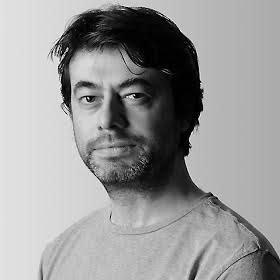“I went and got this big cast iron frying pan and a hammer, and I held it up facing this funky old mic and just went, bam!”: Terminator composer Brad Fiedel on the making of his iconic synth-fuelled sci-fi soundtrack
"What I did on the original Terminator came from me," he says, "but I can't say that I invented anything”
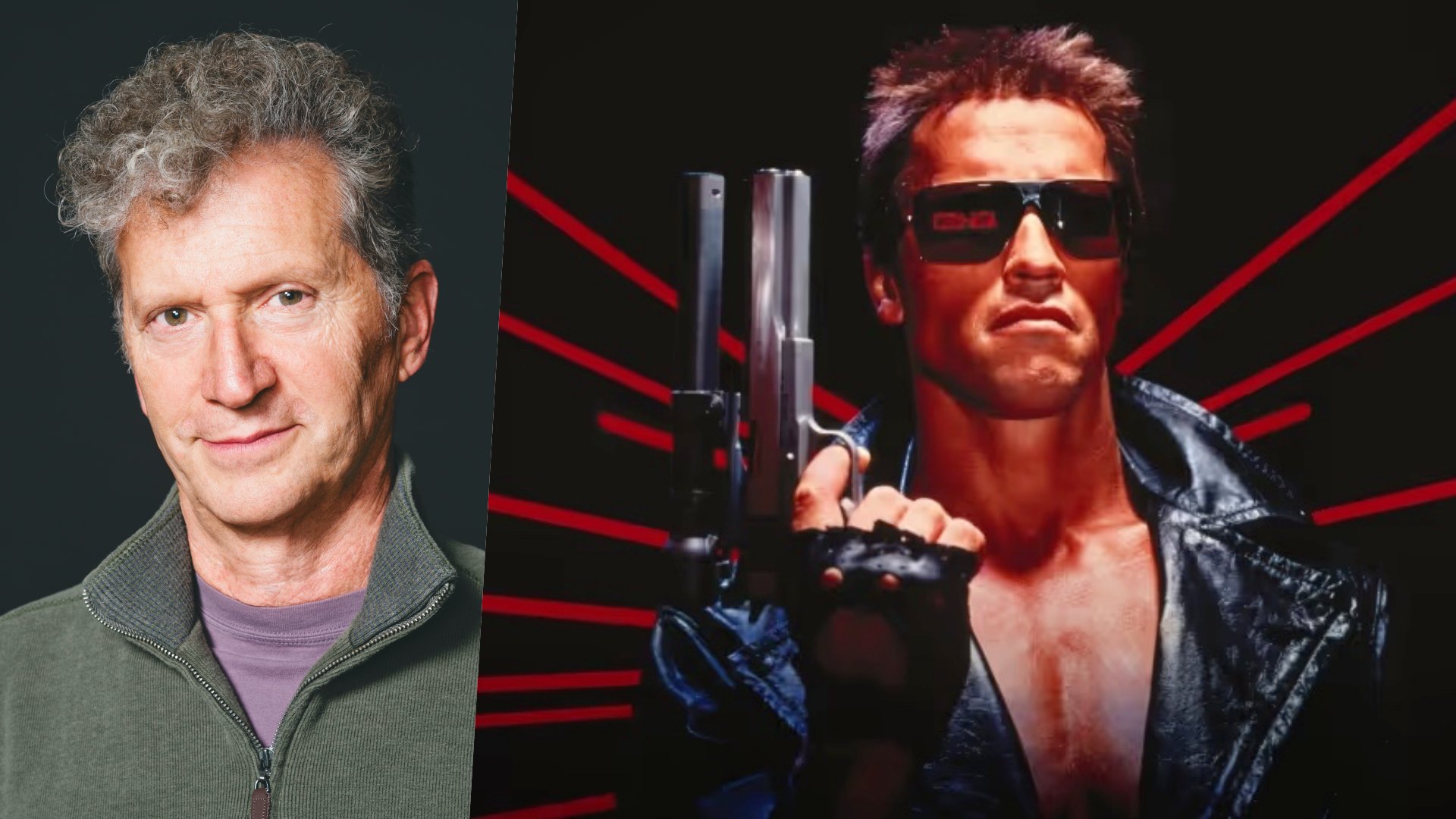
In the early 1980s, budding TV and movie composer Brad Fiedel landed a gig on a low-budget sci-fi film (from the up-and-coming director of Piranha 2) that seemed like the perfect way to flex his burgeoning electronic soundtrack muscle. Little did either he or director James Cameron know that it was an opportunity that would change both their lives.
That movie was The Terminator which, alongside its sequel and further work alongside Cameron, would cement Fiedel's place as a pioneer in the field of movie composition, recording and sound design, and pave the way for the tech and process that every big-name composer enjoys today.
Now, as a further extension of Fiedel’s famous musical landscape for Terminator, the Terminator Live show takes his music on the road internationally, combining a big-screen presentation of the movie alongside a full live band experience that resets the technical limits of what was possible then to create something that’s seemingly impossible now.
We caught up with Fiedel to talk about the new project and his travel through time.
Whereabouts are you at right now?
"I'm in Santa Barbara, at home. I have my studio here. I made a big window, facing the garden. My acoustic designer would have killed me if he saw it! I just cut a big hole in the side of the place.
"I did have a glorious studio designed by an award-winning designer here in Santa Barbara. I had a whole building dedicated to it. It was built when analogue existed, so there’s a machine room with all the big equipment, the Dolby noise reduction, the 24-track… Anything that made noise, and then I had this beautiful area, high ceiling, acoustically designed area with a big screen.
Want all the hottest music and gear news, reviews, deals, features and more, direct to your inbox? Sign up here.
"That was back in '96 and it was designed and built for me. And then it got to a point where I wasn't using it that much.
"This area where we are is so desirable and space is at a premium so I decided to rent out one half when I didn't need the machine room. I thought we could give this space to somebody who's here doing stuff for the community and could really use it. Plus I was travelling so much. And what used to take up all that room is now on my laptop."
Over the years you must have seen electronic gear go from nothing, to gigantic, and now it's all shrunk back down into a laptop.
"I was thinking about how lucky I was in so many ways. Both to be present and part of the early utilisation of technology and here today. When I started recording scores I was doing mostly acoustic, small ensemble and orchestras in the studio in New York. Voyage of the Mayflower with Anthony Hopkins as the captain of the ship, and so on. These were specials for TV and I was just starting to play with synthesizers."
How did you get started composing with synths?
"I had been lucky enough to meet Robert Moog's assistant who came down and brought prototypes of what they were working on and I got to play with these things. It was all monophonic, one sound at a time, so if you wanted to record them, you had to overdub many tracks.
"And then to be around for the arrival of the Australian Fairlight CMIs, the first computer musical instrument. They are these huge boxes, very clunky, but I love the sound of them.
"But initially I had this little chain of Oberheim synthesizer keyboards, their drum machine, and their really, really basic sequencer where you could program notes. The Oberheim System, they called it.
"So a lot of that stuff in Terminator - some of the signature themes, the chase stuff and things like that - that was all Oberheim. Plus we had one of the very first samplers, the Emulator One. Back then they just called it ‘Emulator’ because they didn’t know there’d be another one..."
And you always kept up to speed with the evolving tech?
"Well, I got to a point where I didn't want to learn any more ways of programming because things were happening so fast. I could spend half my life… programming. My head was so full of all the different kinds of programming, I was losing track of that gut energy of what does the film sound like. I was too caught up in the glitches of this and that.
"So I kind of stepped away and started to play a lot of acoustic piano and go back to live orchestra like on the film True Lies. That’s a 110-piece orchestra.
"A lot of composers eventually had their own programmers. They would describe a sound and they had these helpers making sounds. But for me it was always very hands-on… experimental. Coming out different than I thought and then realising I liked it more, you know? That kind of hands-on stuff. So all the sounds I ever used and created, I created myself.
"Like the classic Terminator ‘clank’. You might think it was the sound of an anvil, but it wasn’t.
"That clank was just so big and gutsy. Like a real anvil but somehow orchestral. You hit that and it sounds… Wow… But I actually made that sound using a frying pan.
"I was getting frustrated because the way that I work is that I see a film and I start to hear things in my head. Sometimes I sit at the piano and it comes through my fingers almost subconsciously, like the Terminator melodic theme. That came the day after Jim showed me the picture. But for this movie I just heard this ‘clank’ and I couldn't get anything epic enough. So I was kind of frustrated.
"And I just said, ‘Oh man’. I went and got this big cast iron frying pan and a hammer, and I held it up facing this funky old mic and just went, bam! I'm like that! And it distorted and we added a bunch of reverb to it, obviously. But when I played it back I went, ‘That's it!’"
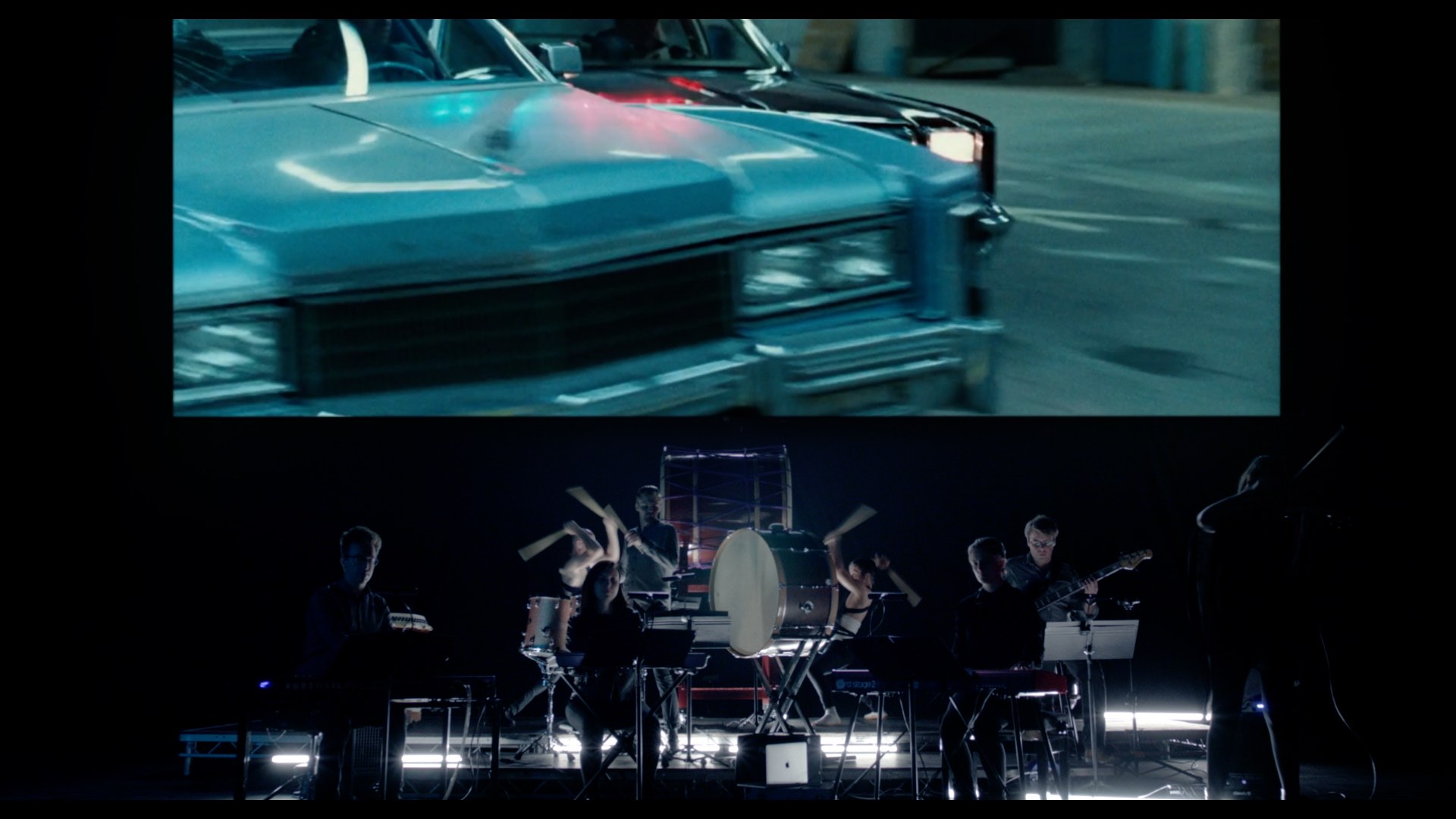
So you’ve never been one to lean on libraries and presets?
"I did use some pre-sampled sounds, of course, from a library. The Emulator had this weird library, on big, eight-inch floppies, and you put it in there, and I had this sound that was kind of like an orchestra hit. And you, you hear that in the score alongside the Oberheim stuff and then the [Sequential Circuits] Prophet 10.
"Actually, that was one of the hardest sounds to reproduce for the live show, and it's part of the classic question as to what time signature is the main title in. It's because of the fallibility of me being a human and the workings of the Prophet 10. That keyboard had a little tape that ran in it, that was recording the sequences digitally.
"So that sound that goes [sings the disjointed rhythm of the synth] and it's kind of like the pulse of the machine. Then there’s the ‘boom boom boom!’ and it's like the heartbeat. And then when The Terminator starts to move… he’s like a machine, pumping. And the people trying to approximate it couldn’t get anything close to that sound.
"The original 24-tracks are long gone. So I didn't have a way to lift it from an individual track and sample it, which would be the easy way to go. But we worked and worked on it and finally got there with the help of several people."
So for Terminator Live you have the live, HD movie on a big screen, running in sync with electronic elements, then this big live band in front of that? Sounds like quite the logistical challenge.
"You're getting a little above my head on that! From my understanding, the conductor has a screen in front of him and it's all cues, right? So like in the old days, when we used to conduct to the film, they would literally put a little mark on the film with a little tool – it was all very organic, very analogue – but there would be a mark on the film and it would come up on the screen.
"Then they tie that with Logic Mainstage. But in addition to making it hit the film at the right time, there’s a fair amount of my stuff that can be improvised live. Like, when I originally played the love theme on acoustic piano, I didn't do that to a click. I just played it.
"So as long as it hits the film and the phrases are where they're meant to be. I think they do a great job. I mean, originally it was just me in my studio, with the 24-track laying things down."
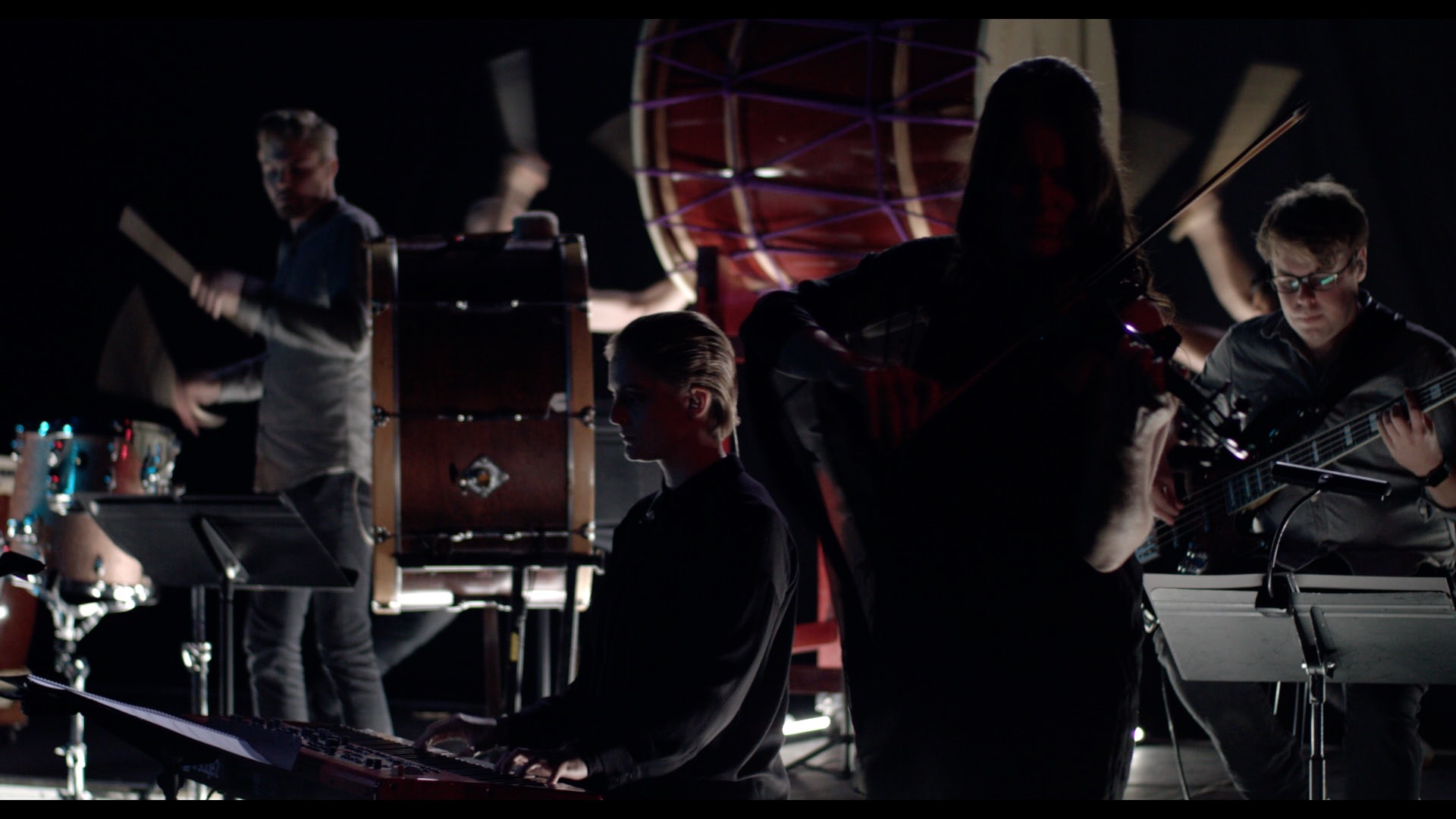
What was the process like, bringing all this together for a live show?
"We talked and talked about it, and it started to come together. 'How is that going to go live..?'
"Reproducing the sounds for the live show, there are certain things that were a challenge, because we’re talking about some archaic gear that was used to make them.
"I spent hours with the producer Pierre and others in the Royal Music Academy basement going through note by note, sound by sound, and saying, ‘Well, I think this should be a lower octave’, you know? Somebody sat there, bless their heart, and listened to my score and made the music on paper.
"There was a point where I was thinking about all the drum machine stuff – which literally nobody's playing live. The clank in Terminator is the only percussion sound that I played live in that whole score! Everything else is pre-programmed.
"So to bring that to the live stage we have oil drums and pots and pans and electronic drums and a drum set. Then we thought of Taiko drummers! And it's like a dance that they do. So that's really cool. The T2 soundtrack is a little bit more emotional, but wow, Terminator is a lot about rhythm, this is just about drive, drive, drive!
"The consulting for me was exciting and fun. And revisiting stuff that I didn't even remember was quite a challenge, but we did an amazing job. A really amazing job."
And this is all being played by the live band?
"And people think that it's guitar on the score but it’s not. It's electric violin and electric violin is also a thing that has a classic form. But all these instruments are being used in the service of the score and I think that becomes really interesting.
And everywhere they play, the Sydney Opera House, all the places, the people go crazy!"
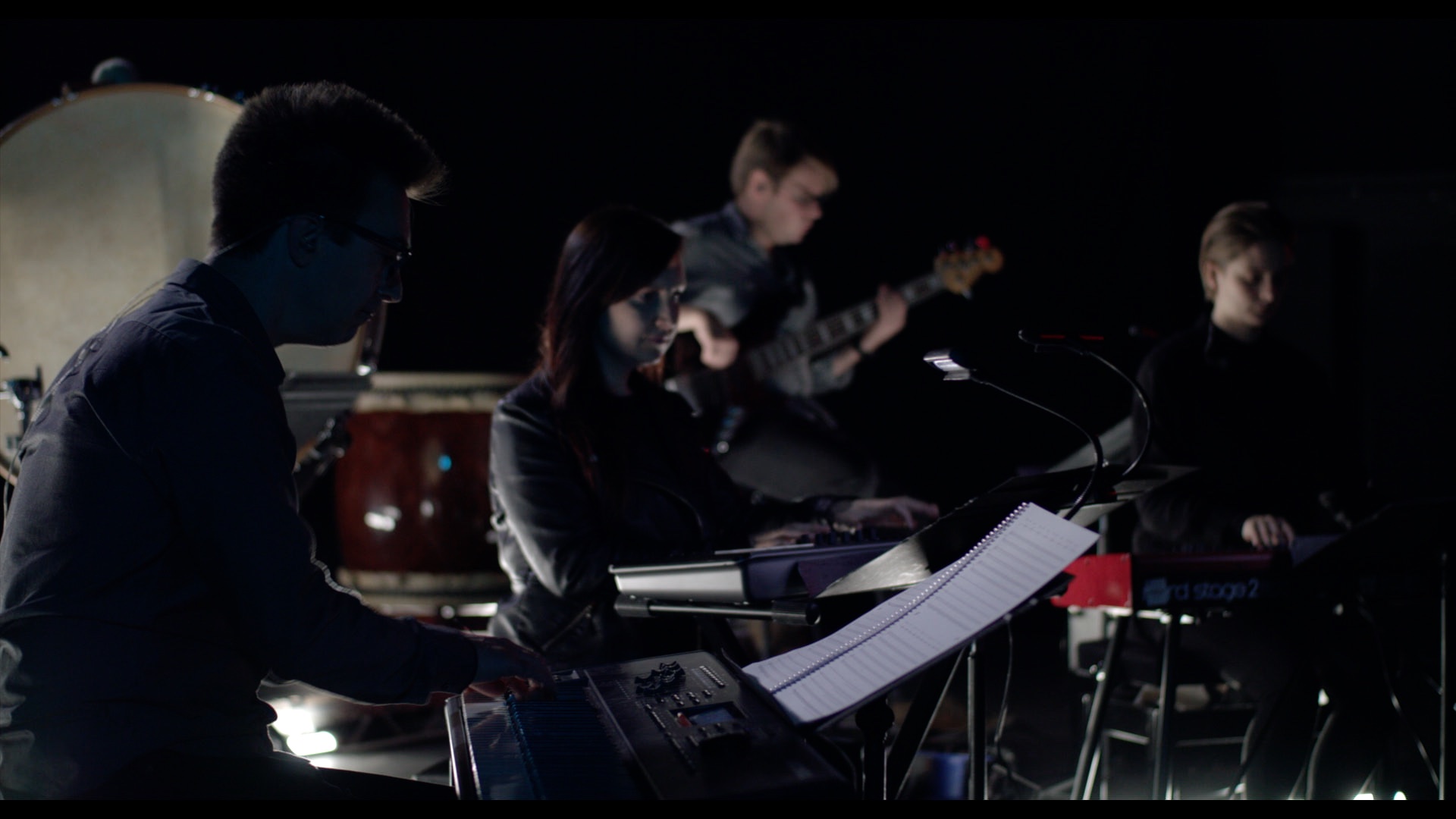
Going back, how did you land The Terminator soundtrack gig?
"You know, it's one of those crazy things in life. I'm not a horror film fan for the most part, not that Terminator is a horror film, but Jim [Cameron] had only done Piranha 2, so I didn't even know who he was.
"He was doing art direction at Roger Corman's studio and he got a shot to direct the sequel of Piranha, which I also never saw, and my agent’s office called me and the main two agents did NOT want me to take the film.
"It was being distributed by Orion but the film company was a British company, Hemdale, and my agents had had some experience with other people not getting paid for a long time or not getting paid correctly. So I had a phone call with them and, yeah, they were really weird.
"They were like, 'If we give you this package…' – it was a lot of money for them, and it was a really low budget – and they were, 'How do we know you're going to deliver something good..?'
"What can I say? I wanted to work! But my agents were, 'No, no, don't even do it. You'll have to put the money in escrow [a bond]. It's going to be a mess…'
"But Beth Donahue at the agents – bless her heart – she said 'Brad, you have to do this. You have to.' And I felt that too. So we just said, ‘Yeah, we're doing it.'"
Your agents thought you’d be a good match for the gig?
"They knew that I was experimenting with electronics and all that so I was probably one of the main guys who was playing with sound in a different way. And I had a longer track record than Jim [Cameron] did – I mean, this was '84 and I’d been scoring films since '76.
"And we’d put together this little tape. A cassette. And Jim had listened to it in his car. And it grabbed him somehow. And he and Gale Anne Hurd, the producer, came to my studio and showed me the film while they sat there.
"And, you know when a director gives you a spiel from his heart and mind about, ‘This is what I'm doing,’ and they're always really excited about it? I can't tell you how many times, especially in some of the lower budget stuff I did early on, that you watch the movie and you go, ‘Oh, Ohhkay…’ But this was one of the first times that I had that spiel from the director, and then I watched it… And there it was!
"He did what he wanted to do. Everything about it was just really intense... and the colour – and we're looking at it on a large tube TV monitor, so it wasn't even the best way to see it! And the really good news was that I’d requested to see it without any music in it.
"You know. Everybody puts ‘temp’ tracks on. But he agreed to that and he realised later how important that was."
So you loved the film and they loved your music…
"...But I could feel Gail Anne was very sceptical. And when Jim went out to use the restroom she played bad cop. She said, ‘I see you've done a lot of TV. I hear composers do a lot of TV because they can't get feature films.’ Hmm… So I said to her, 'Well, in the last few years I've scored Vanessa Redgrave, Anthony Hopkins, Jimmy Stewart, Bette Davis… And who's in your movie? [laughs] I don't think she ever liked me ever after that!
"The deal wasn't sealed when Jim came back in the room. But, when I’d had some free time I’d created my own piece of music just for me, just for the hell of it. I was using some new technology where I could tie my grand piano to my synths. They put little sensors in it, and I could record the MIDI information so I could tie it to other instruments.
"So I’d created this whole concerto for piano. And since it was very dark I thought ‘That's the closest thing I got to what I'm seeing here.’
"So I said, ‘Can you wait a minute'? And I put that up on the 24-track and did a quick mix of it for them and that's what sealed the deal. It didn’t really relate to the Terminator directly, but it was acoustic piano and very dark synths and it felt ‘otherworldly’, you know?
"So just that moment of expressing my own musical soul and that piece is what sold him on me."
And what were your expectations of the movie? Because at the time it was just another low budget sci-fi film. Did you think it was going to be anything special?
"You know, I did. I was a little close to it, you know? Because you get your head in there. I knew it was really good. The edge of it and the muscle of it… and Jim's dedication.
"I would try to put in the main theme over the escape from the police station. I’d put in that [sings] ba, ba, baaah! ‘Our hero and heroine are getting away from the police station!’ And he would go ‘You have to take out the melody…’
"But that’s what a film scorer would do, right? But he would say, ‘No, I don't want the audience in that part of their brain.’ This is how knowledgeable he was even back then about what he was trying to accomplish in his communication with the audience.
"He said, ‘I want them on the edge of the seat, having trouble catching a breath. And if you engage the part of their brain that goes, ‘Oh, there's the hero, there's the theme. I've lost that little bit of them.'"
So he was tricky to work for?
"No, he was right on top of it as a filmmaker and that meant lots of freedom for me. He didn't hum me anything. He didn't play me anything. It all came from me. But his direction was so right for what he wanted to do. But I had no idea in the marketplace, for what was going to happen."
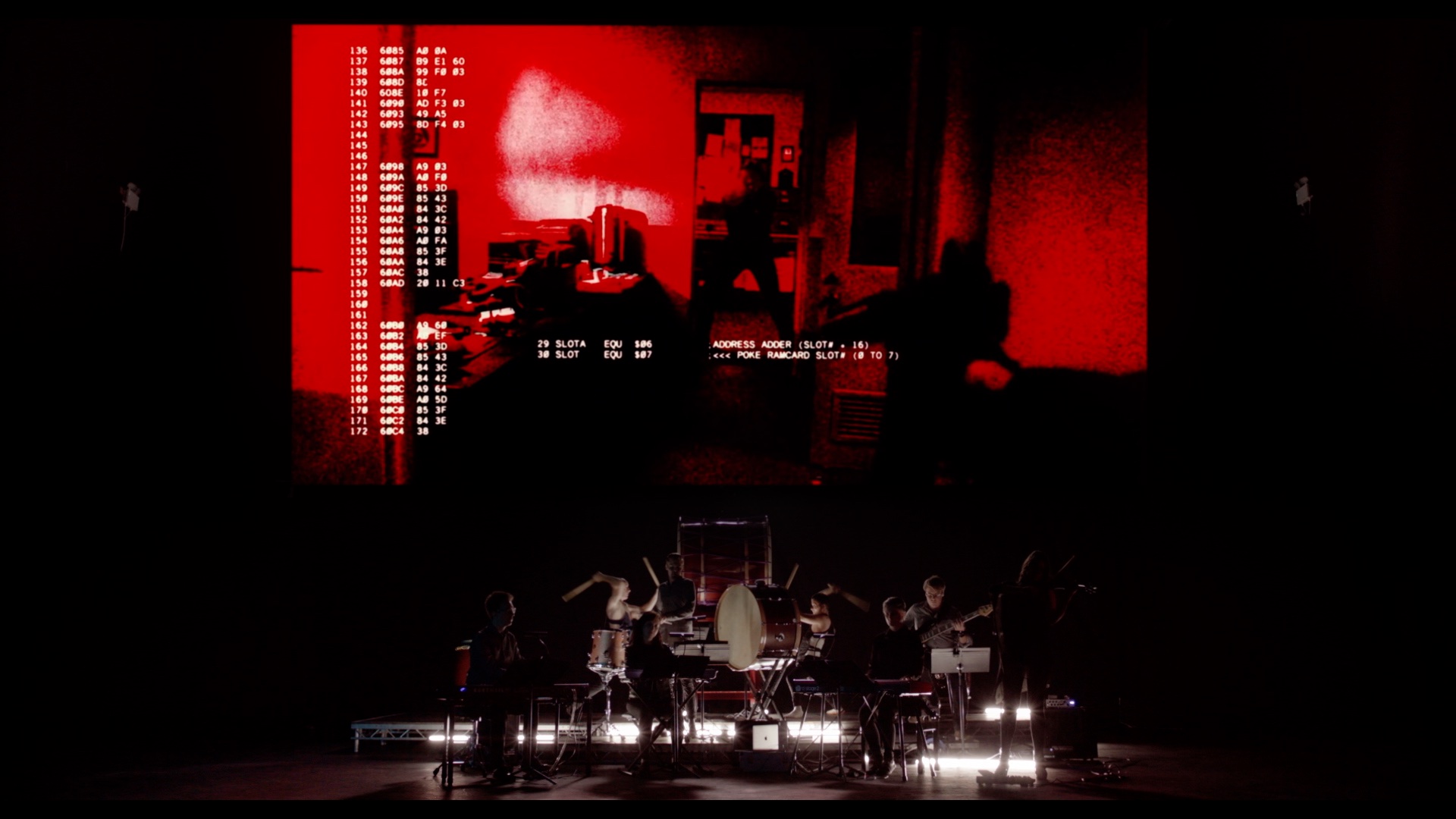
Because the film was this huge surprise hit...
"Well, there was this industry screening – at the old Director's Guild screening room, I think. And I went with Ross Levinson, my good friend who's played electric violin for me on a number of scores, and was intimate with the whole process and helped with some of the mixing. We went to the screening… and they were laughing.
"There are some funny lines in the movie, as you know, but they were laughing in the wrong places. And there was an attitude in the room: ‘Yeah, here we go. Roger Corman graduates trying to make a movie…’ There was just something happening in that room, and it didn't feel great.
"And as Ross and I walked out, we saw Jim standing off to the side. And he was white. Or green. Or something. And we went over to him and he was in shock. And we're like, 'It's gonna be good, it's gonna be great…' I think, in a way, Ross foresaw how good it was more than I did. I think I was too close to it, having lived with it, 24/7.
"Then I went off to Europe before it was released. There was no social media then. Even telephone was a pain. So I had no idea. So when I come back – I'm living in LA in Studio City and there's a stack of my Varietys and Hollywood Reporters waiting for me – and first of all, I go to my old-school tape phone answering machine. And there's a message from Linda Hamilton who I never actually met in the process.
"And she's going: “Brad, I got your number. I hope you don't mind. I just want to say your music for this movie is one of the best blends of music and visual and story that I've ever experienced. Thank you. That was just such amazing work.”
"I was like, ‘Oh. OK. That's pretty cool.’ And then I start reading the copies of Variety and Hollywood Reporter and I’m seeing… Whoa! The whole blossoming of this unexpected hit."
How do you feel about the notion that you invented the ‘big bombastic Hollywood score’. The big drums… The combination of synths and orchestra…
"You know, there's nothing new under the sun. I don't really buy it, to tell you the truth.
"What you're describing is almost more T2 than Terminator, as far as strings, and that was a bigger Hollywood kind of film with a kid in jeopardy and Arnold as the good guy! I think that score in its own way had a lot of influence.
"What I did on the original Terminator came from me. But I can't say that I invented anything.
"What I did kind of contribute to was the idea of the home studio. So even when I did an orchestra score, I scored it in my room with whatever the best stuff I had was.
"When I did True Lies, Fox made me sign my first born that I wasn't gonna go over budget because Jim had spent a lot of budget on everything else! I wanted to have a big orchestra and so made sure that everything was pre-approved – so there wasn't a new concept being debated with 110 people sitting out there on the clock.
"So I did the mockup. Which is a common thing right now. But I was in on the ground floor on that, and it was absolutely to protect my artistic freedom because it meant there were no surprises later and I could go way the hell out.
"But I like to think that I do hear things… Literally a rhythm that’s very close… You know, people temp track with those Terminator scores all the time. And you can tell when there’s a composer that they're pushing to come close to matching the temp!
"That was the end of all creativity for me. That's when I started to kind of move out of the whole scene.
"I got to work in this beautiful period. A director showing me a film and saying, ‘Do your magic’ and letting me go, you know? And being able to really create. But that became a place where people put in the best from John Williams or the best from Hans Zimmer, and say, ‘We want that…’"
You prefer a blank canvas?
"Like on the second Terminator, the T-1000 melting and fighting and all that stuff? I did some crazy stuff on that when Jim first heard, he said, ‘I don't like atonal music.’ And this was one of the few times I ever had to sell him anything and I took the risk because I was really committed to it. I said, ‘You are showing the audience stuff they've never seen before. If I have typical musical tonality at that point, it's going to lessen that. I want people to feel the vertigo and be like ‘What am I looking at!?'
"We want to create an image that goes directly into the subconscious as opposed to like, Jim would say, filtered through this way. And one of the ways I thought to do that was creating sounds nobody had ever heard.
"So even with the string sounds as you were talking about, it's orchestral, but it's not… I mean, it’s in the composition against some of this crazy percussive bottom end, but there's something just a little twisted about it.
"Jim and I talked about real strings for Terminator 2, and the schedule forbade it because the visual effects were coming in so late. But what we really realised is, again, is that we didn't want to normalise the sound of the score.
"We wanted it to be… Even when it's recognisable as strings, subconsciously it's twisted. It's doing different things that are beyond an acoustic instrument."
Are there any soundtrack composers that you admire today? People that we should perhaps listen out for?
"I really go to a film and try to just be an audience, you know? But there are certain scores by Hans Zimmer that I think are fabulous. But there are some really fabulous women composers, which were totally rare back then.
"Rachel Portman, Hildur Guðnadóttir, Laura Karpman and Shirley Walke, who I had the pleasure of working with. There's great stuff happening out there."
What are you working on right now?
"The last thing I did is out there as audio on YouTube. A musical I wrote – I wrote the book, the lyrics and the music – which is called Full Circle, which we were about to go out and test drive when Covid hit.
"It’s about a lot of things, but partially based on my grandfather's experience in Eastern Europe and running to the US to get away. And it's a full-on musical, you know, with an intermission! I hadn't felt like writing for quite a while, but I have fans coming to me appreciating other scores that are a little bit more off the beaten path.
"I think all of us as composers, we're chameleons. We do what the film needs. And there's stuff there that people appreciate. It's not new, and you may not have heard it, but it's out there."
The Terminator Live will tour the UK in October and November, tickets and further information are available at AEGPresents.co.uk.
Daniel Griffiths is a veteran journalist who has worked on some of the biggest entertainment, tech and home brands in the world. He's interviewed countless big names, and covered countless new releases in the fields of music, videogames, movies, tech, gadgets, home improvement, self build, interiors and garden design. He’s the ex-Editor of Future Music and ex-Group Editor-in-Chief of Electronic Musician, Guitarist, Guitar World, Computer Music and more. He renovates property and writes for MusicRadar.com.
You must confirm your public display name before commenting
Please logout and then login again, you will then be prompted to enter your display name.


